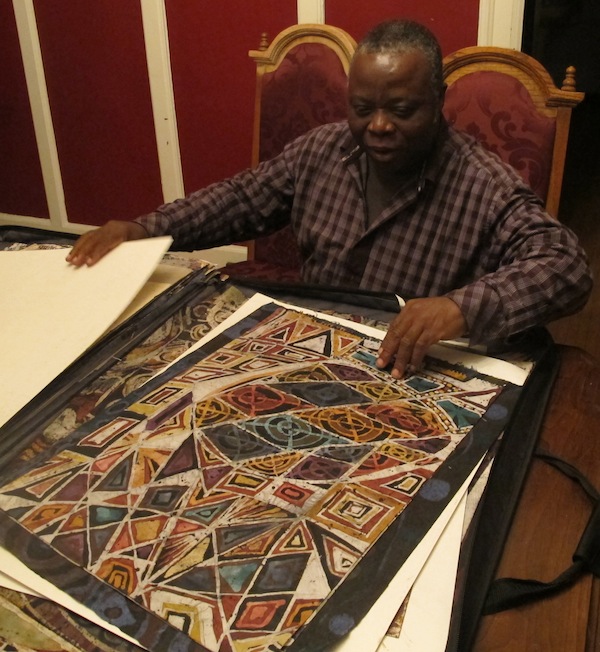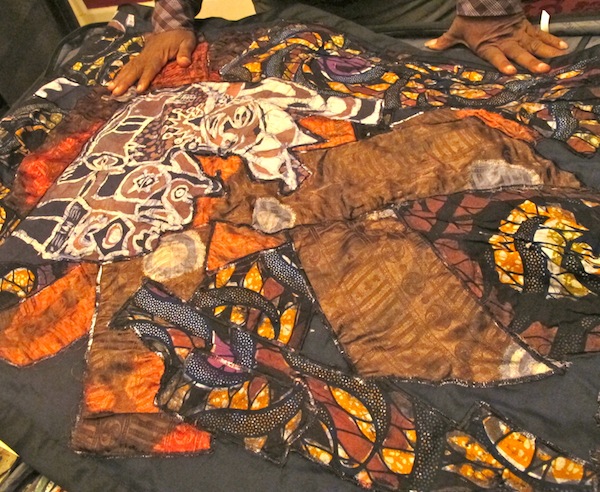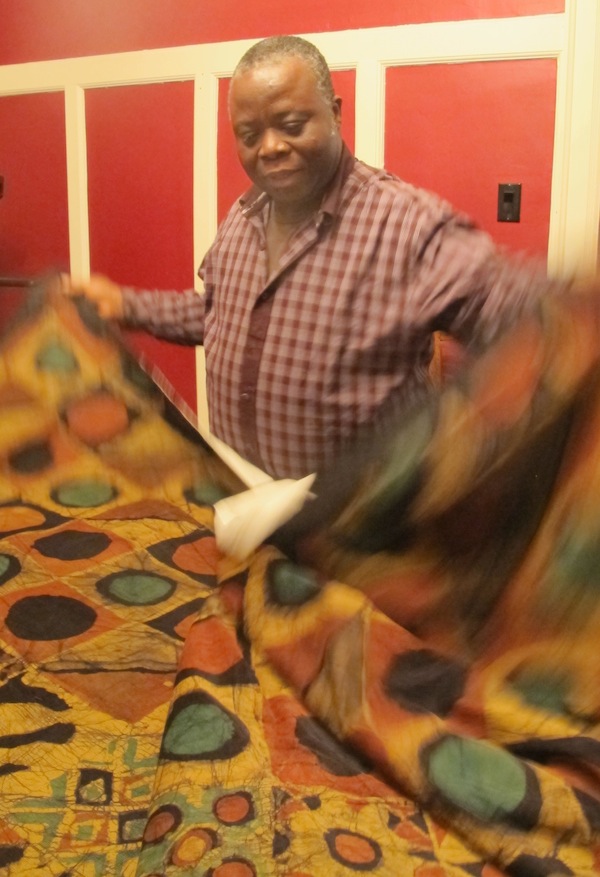
Nigeria’s pre-eminent batik artist comes to Detroit
I had the great fortune of catching up with Tunde Odunlade on his recent trip through Detroit. Born and based in Nigeria, Odunlade is a working artist with gallery representation in cities including Toledo and New York and a workshop circuit, where he teaches and demonstrates both traditional and breakthrough batik techniques, which figure heavily in his body of work.
As a fiber artist, Odunlade draws heavily on a tradition of batik dyeing, which might be considered “craft” within a certain definition of art. He and I agreed the distinction made between arts and craft may serve to marginalize the creative work of particular populations — and incidentally is a linguistic dichotomy for which his mother tongue makes no accommodation, referring only to “work of creativity” rather than “art” or “craft.” Regardless, even a glance at Odunlade’s oeuvre reveals distinct works of art, masterfully rendered throughout four decades of artmaking, and even the most cursory of conversation proves him to be an original and enthusiastic spirit, able to engage patrons of the arts as easily as patrons of the corner coffee shop.
The work Odunlade was kind enough to share with me, a cross-section of his output throughout the last three years, falls generally into two main categories — works on paper and those on fabric. In the adaptation of the batik process to his paper works, Odunlade creates bold designs and dense color combinations on the most delicate of surfaces. Some of these works are more figurative, depicting recognizable subjects, and some of them are abstract; the majority of them employ a common palette in rich harvest colors and deeply saturated tones. Odunlade expressed his deep feeling for batik, the subject of his high-demand workshop circuit, his development of new techniques which employ marbling as a base for the batik and his desire to present one of his works to President Barack Obama, whose family apparently has an impressive collection of batik art.
His fabric works were of particular interest — one of them was recently acquired by the Detroit Institute of Arts (a Knight Arts grantee) as part of its permanent collection. Ranging from painting-sized to quilt-sized, these pieces are mostly assembled utilizing an applique approach, layering bits of plain fabric onto canvas backings before filling in the scene with many layers of waxing and dyeing.
Taken as a whole, Odunlade’s work operates successfully on many levels — as a showcase of traditional African art being brought into a modern context, as an international and highly tactile form of communication and, perhaps most significantly, as a beautiful argument for the abolishment of petty distinctions between art and craft movements.
You can see more of Tunde Odunlade’s work here.
Recent Content
-
Artsarticle ·
-
Artsarticle ·
-
Artsarticle ·


